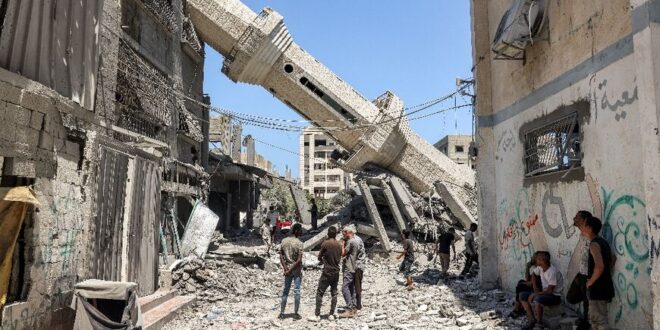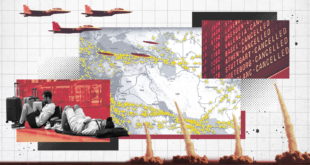Israel kept up its air strikes on Gaza Wednesday after Prime Minister Benjamin Netanyahu vowed to ramp up the pressure on Hamas as hopes faded for a US-announced ceasefire plan.
Hamas political leader Ismail Haniyeh accused Israel of deliberately undermining negotiations for a truce and hostage release deal because it did not want to end the war.
The Israeli military said it had carried out 25 strikes in 24 hours, targeting “military structures, terrorist infrastructure, terrorist cells and rigged structures”.
Netanyahu, who has repeatedly vowed to eradicate Hamas, insisted Tuesday that despite mounting pressure, there would be no let-up in Israel’s campaign against the militants.
“This is exactly the time to increase the pressure even more, to bring home all the hostages -– the living and the dead –- and to achieve all the war objectives,” he said.
He rammed home the point in a speech to parliament, saying: “We have got them by the throat; we are on the road to absolute victory.”
The health ministry in Hamas-ruled Gaza said 52 people, most of them women and children, had been killed in Israeli strikes over the previous 24 hours.
The territory’s civil defence agency said 30 people had been killed in three strikes in Nuseirat refugee camp in central Gaza — one on a UN-run school, another on a house and a third on a mosque.
Later on Wednesday it reported 15 deaths across central and northern Gaza from Israeli action, while the health ministry reported three children and a woman killed near Khan Yunis.
In southern Gaza, two people were killed in Israeli bombardment of the Shakush area, northwest of Rafah, a medical source at Nasser Hospital said.
- Talks deadlock –
At least 90 percent of Gazans have been forced from their homes, many of them seeking refuge in UN-run schools. Seven of these schools have been hit by Israeli strikes since July 6.
Nearly 70 percent of UN-run schools across Gaza have been hit during more than nine months of fighting, the UN agency for Palestinian refugees (UNRWA) said on Tuesday.
“Why do they target us when we are innocent people?” asked Umm Mohammed al-Hasanat, sheltering with her family at a UN-run school in Nuseirat, which was among those hit.
“We do not carry weapons but are just sitting and trying to find safety for ourselves and our children.”
Washington has been pushing for a truce deal between Israel and Hamas since President Joe Biden released details of what he said was an Israeli ceasefire roadmap on May 31.
But despite the efforts of Egyptian and Qatari mediators, indirect negotiations between the foes have made no headway.
In a telephone call with Turkish Foreign Minister Hakan Fidan late Tuesday, the Hamas leader blamed Israel for the deadlock.
“We dealt positively with the proposals put to us by the mediators but the occupation is avoiding the required outcome and does not want to reach an agreement under which it ends its war,” Haniyeh said.
His comments came after a senior Hamas official said Sunday that the group was withdrawing from the current talks following Israel’s deadly strikes but was ready to return if its attitude changes.
- Hostage families demand deal –
The war began with Hamas’s unprecedented October 7 attack on Israel which resulted in the deaths of 1,195 people, mostly civilians, according to an AFP tally based on Israeli figures.
The militants also seized 251 hostages, 116 of whom are still in Gaza including 42 the Israeli military says are dead.
Israel responded with a military offensive that has killed at least 38,794 people, also mostly civilians, according to figures from the Gaza health ministry.
The war has devastated the coastal territory and left Gazans suffering shortages of food, medicines and basic goods.
At a press conference on Wednesday, the World Health Organization’s representative in Gaza and the occupied West Bank, Rik Peeperkorn, said that only 16 aid trucks had entered the Gaza Strip via the Kerem Shalom border crossing during the last month, while dozens of trucks were still waiting to do so.
The main crossing point for aid, Rafah, which connects Gaza with Egypt, has been closed for months since Israel sent ground troops into the city.
The WHO also said that out of the territory’s 36 hospitals, only 15 were partially functioning and that there had been more than a thousand attacks against health facilities in Gaza since October.
Meanwhile, the US military announced that its problem-plagued mission to deliver aid via a temporary pier had officially ended.
Vice Admiral Brad Cooper told reporters the mission was “complete, so there’s no more need to use the pier”.
 Eurasia Press & News
Eurasia Press & News



